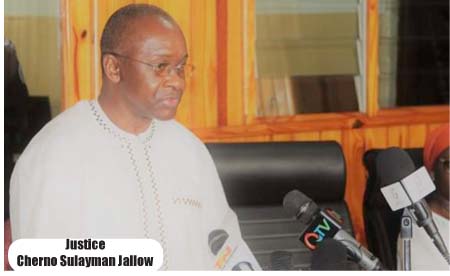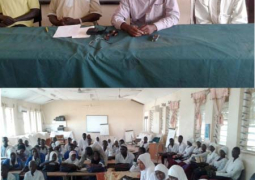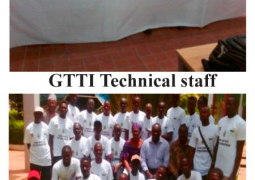
No
sitting president will be allowed to establish, advocate for, participate in or
promote the establishment, or in any other way engage in the establishment,
directly or indirectly, of any organisation or institution of a civic,
charitable or other nature, according to a draft Constitution of The Gambia.
Justice
Cherno Sulayman Jallow, the chairman of the CRC during a press conference on
Friday at the CRC’s office in Kotu said the draft constitution comprises 20
Chapters (3 chapters less than what is contained in the current constitution);
with a total of 315 clauses.
The
CRC is tasked by the Constitutional Review Commission Act 2017 to review the
1997 Constitution and draft a new constitution and prepare a report about it.
Since
its establishment in 2017, the CRC commissioners and staff have embarked on
public consultations within and outside the country with a view to sounding the
opinions of Gambians as to what they wanted in the new constitution.
Each
chapter of the draft constitution, he explained, addresses a different issue,
although in some instances certain chapters have a correlation with provisions
contained in other chapters.
“Appropriate
sectional references and cross references are made where necessary in order to
ensure clarity and/or avoid or prevent inconsistencies. These are necessary
aspects of drafting,” Jallow said.
He
added: “In essence, the draft constitution we present to the Gambian public
today is the embodiment, as we have been able to discern from the opinions
canvassed with the CRC, of the people of The Gambia.”
“We
have crafted them in a manner that we consider best represents
constitutionalism in our young democracy as we look forward into the future.”
The
CRC boss stated that in the first chapter dealing with the republic and
sovereignty of the people, specific provision is made to declare The Gambia as
a multi-party democratic state that is founded on respect for the rule of law
and the national values and principles of governance enshrined in the
constitution.
He
said: “In addition, it identifies the three organs of government (Executive,
Legislature and Judiciary) to whom the sovereign power of the people is
delegated and on whose behalf that power must be exercised for the welfare and
prosperity of the people.”
Justice
Jallow added that they also put into account the emphasis placed by the people
on empowering local government authorities and the importance of devolution of
government.
Chapter
II, he went on, clarifies that a treaty The Gambia has entered into does not
automatically become law unless it is transposed into domestic legislation.
“The
courts are empowered to have due regard to international human rights treaties
that The Gambia is a party to where that is considered necessary to aid the
interpretation or application of a provision of this constitution with respect
to any right or freedom.”
The
draft constitution, Justice Jallow further stated, has a preamble which revises
the preamble of the current constitution to embody elements considered
fundamental to the constitution, including placing emphasis on respect for the
rule of law and fundamental rights and freedoms.
“It
also places emphasis on good governance, separation of powers, sustainable
environment and equitable distribution and use of resources, and equality
before the law.”




